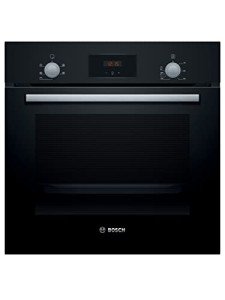You'll Be Unable To Guess Built In Electric Oven's Benefits
Page Information

본문
The Comprehensive Guide to Built-in Electric Ovens and Hobs
In today's hectic world, modern kitchen appliances have progressed significantly to cater to the tastes and requirements of contemporary property owners. Amongst these appliances, built-in electric ovens and hobs stick out for their performance, design, and performance. This article checks out the features, advantages, installation suggestions, and upkeep of Built In Electric Oven-in electric ovens and hobs, alongside resolving often asked concerns.
Understanding Built-in Electric Ovens
What Is a Built-in Electric Oven?
A built-in electric oven is a device created to be installed into a wall or kitchen cabinetry, providing a seamless, integrated look in the kitchen. Unlike freestanding ovens, built-in models conserve area and often come equipped with additional features such as self-cleaning cycles, convection cooking, and different cooking modes.
Kinds Of Built-in Electric Ovens
- Single Ovens: Ideal for smaller kitchens or those who prepare for fewer people.
- Double Ovens: Offer more cooking area, suitable for bigger households or those who amuse often.
- Combination inbuilt ovens: These include both a conventional oven and a microwave, offering flexible cooking choices.
Advantages of Built-in Electric Ovens
| Benefit | Description |
|---|---|
| Space-Saving Design | Fits seamlessly into kitchen cabinetry, freeing up counter space. |
| Enhanced Aesthetics | Produces a contemporary, professional kitchen look. |
| Versatile Cooking Options | Often includes multiple cooking modes including bake, broil, and convection. |
| Energy Efficient | Takes in less energy than conventional ovens. |
Comprehending Built-in Hobs
What Is a Built-in Hob?
A built-in hob is a cooking surface installed into the kitchen counter top, incorporating effortlessly with the kitchen design. Offered in electric, induction, and gas varieties, electric hobs are renowned for their accuracy and ease of use.
Kinds Of Built-in Hobs
- Electric Hobs: Traditional coil elements that heat via electrical resistance.
- Induction Hobs: Built in Electric oven Use magnetic energy to heat just the pots and pans, making them much faster and much safer.
- Ceramic Hobs: Feature a smooth surface with radiant heat below, using simple cleansing.
Advantages of Built-in Hobs
| Benefit | Description |
|---|---|
| Quick Cooking Times | Electric hobs heat quickly, reducing general cooking time. |
| Easy to Clean | Flat surface area permits quick and uncomplicated cleaning. |
| Resilient | Generally built to last and stand up to high temperatures. |
| Versatile Compatibility | Works well with numerous pots and pans materials. |
Installation Considerations
Setting up a built-in electric oven and hob needs cautious preparation.
Actions for Installation
- Step the Space: Ensure the dimensions of the oven and hob match the allocated space in your kitchen built in oven.
- Inspect Electrical Requirements: Consult an electrical contractor to guarantee circuitry can manage the device's power requirements.
- Positioning of Appliances: Position the oven at a practical height, generally in between waist and eye level.
- Ventilation: Ensure correct ventilation, particularly if your oven includes a range hood.
Important Tools
- Power drill
- Screwdrivers
- Level
- Determining tape
Security Precautions
- Always disconnect the power before installation.
- Follow producer guidelines carefully.
- Consider hiring a professional for electrical connections.
Upkeep Tips
Maintaining built-in electric ovens and hobs is vital for durability and performance.
Routine Care Routine
- Cleaning the Surface: Use a soft cloth and manufacturer-recommended cleaner.
- Examining Electrical Connections: Check cords and plug for damages regularly.
- Cleaning Filters: If the oven has a ventilator, tidy or change the filters as required.
Fixing Common Issues
| Problem | Possible Solution |
|---|---|
| Oven Won't Heat | Inspect the power supply and heating aspect. |
| Heating Inconsistency | Check the thermostat and oven calibration. |
| Hob Not Heating | Guarantee cookware is suitable and check the power supply. |
Often Asked Questions
1. How do I select the right size built in oven to buy-in electric oven?
Choosing the best size includes measuring your kitchen space and thinking about how much cooking you normally do. If you amuse frequently or have a large family, decide for a double oven.
2. Are built-in electric hobs safe to utilize?
Yes, built-in electric hobs are safe, especially induction hobs which just warm the cookware, minimizing the threat of burns.
3. Can I install a built-in oven and hob myself?
While it is possible for experienced DIY enthusiasts, employing a professional is suggested, especially for the electrical connections.
4. How typically should I clean my built-in oven and hob?
Cleaning should be done frequently after use, with deep cleaning periods depending on cooking frequency - normally every couple of months.
5. Do built-in appliances require special maintenance?
Built-in appliances need similar upkeep to freestanding designs, but appropriate care must be taken with their surrounding cabinetry.
Built-in electric ovens and hobs present a blend of technology and design, providing efficiency and modern looks to any kitchen. With correct selection, mindful setup, and regular maintenance, these appliances can boost one's cooking experience for lots of years. Understanding the functions, benefits, and care requirements can empower house owners to produce the kitchen of their dreams-- efficiently and stylishly.
As kitchen areas continue to develop into central centers of the home, picking the right built-in services plays a crucial function in day-to-day culinary creativity and satisfaction.

- PrevFive Killer Quora Answers To ADHD Titration UK 25.05.21
- Next10 Misconceptions Your Boss Has Concerning Single Gas Oven 25.05.21
댓글목록
등록된 댓글이 없습니다.
